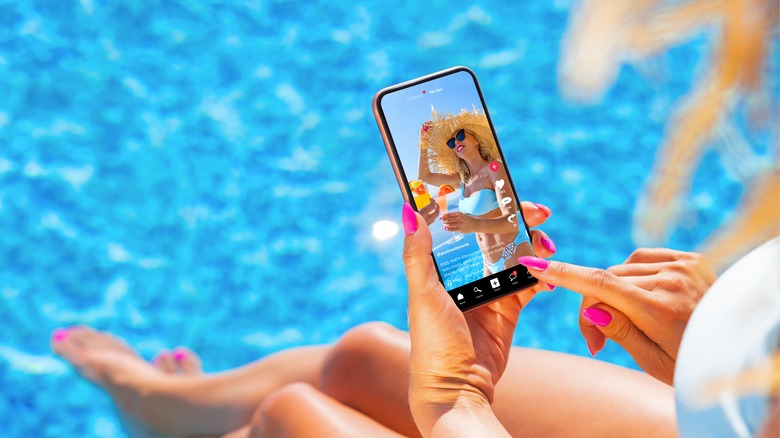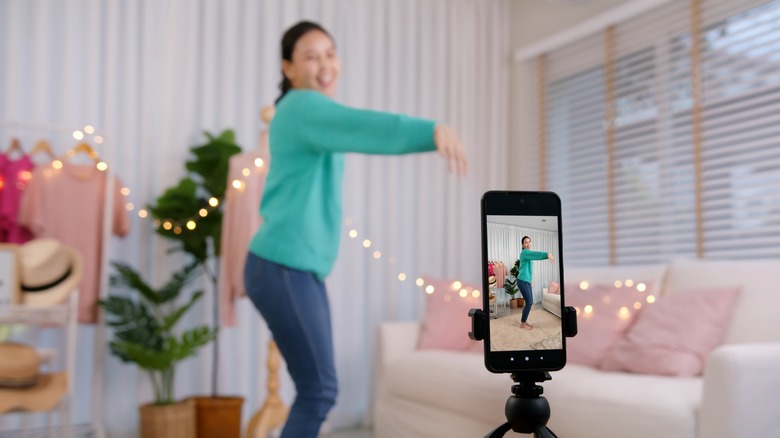The Negative Impacts 'That Girl' Trend On TikTok Has On Mental Health
TikTok's "That Girl" is a viral wellness trend that supposedly encourages young women to be the best and most productive version of themselves. The challenge, which first emerged in April 2021, involves focusing on self-improvement and productivity by sticking to a rigid schedule and eating certain foods (via Bustle). Videos with the hashtag #thatgirl have over 3.7 billion views collectively, according to TikTok, and urge others to become "That Girl" and film their own daily routine.
To become "That Girl," TikTok users are encouraged to wake up early in the morning, eat a plant-based breakfast, work out, and write down their goals for the day. The now-viral trend is more than just filming and adhering to a morning routine, however (via CBC). To achieve "That Girl" status, women must also establish a skincare routine and show off the entire structure of their day. Although the trend is intended to promote health and wellness, however, it might end up doing more harm than good.
TikTok's 'That Girl" trend may contribute to mental health issues
According to experts at Refinery29, TikTok's "That Girl" trend promotes toxic productivity and unrealistic standards. In fact, many of the videos perpetuate a narrow and idealized version of beauty and wellness, which can cause feelings of inadequacy if users fail to meet these expectations, many of which are largely unattainable in the long term. This kind of emotional distress can negatively impact one's mental health. Furthermore, the viral trend also appears to promote under-eating, with some diets amounting to less than 1,200 calories per day.
Many of the videos are associated with pure eating and weight loss, which can cause other users to feel pressured to model this type of behavior and begin restricting foods. Michelle Scott, a psychotherapist and eating disorder specialist at TRC Group, told Glamour that this is particularly harmful. "Social media doesn't create eating disorders," Scott said, "but it gives us the means to look at something we might want to be if we don't feel good about ourselves."
If you are struggling with an eating disorder, or know someone who is, help is available. Visit the National Eating Disorders Association website or contact NEDA's Live Helpline at 1-800-931-2237. You can also receive 24/7 Crisis Support via text (send NEDA to 741-741).


